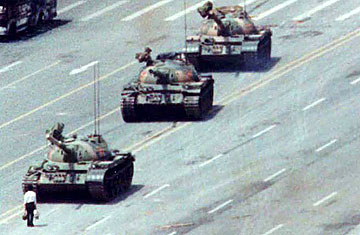
(3 of 4)
It's worth remembering: both Europe and the U.S. are democratic, capitalist and open societies. Contrary to the European idea that the U.S. is a place where the devil takes the hindmost, nations on both sides of the Atlantic value substantial social safety nets. "The American welfare state is more extensive than is often realized," writes Baldwin. "The total social policy effort in the U.S. falls precisely at the center of the European scale."
Hard though some of them might find it to credit that claim, many Europeans have rejoiced in the policies that the Obama Administration has taken since the financial crisis broke. In its determination to control the excesses of financial markets, the U.S. can now seem almost Scandinavian in its commitment to a sort of duvet capitalism, warm and fuzzy. It's enough to make Europeans think — as some have insisted since 1989 — that when it comes to the power of example in the world, it is Europe, with its combination of free markets and social protection, rather than the U.S., that will lead the way.
It is a comforting thought, but it cuts no ice. Paradoxically, 1989, that year when Europe gloriously saw its divisions wither, also marked the end of its centrality in international affairs. For 200 years, European ideas, European wars, European ideologies and technologies that had their roots in European science together shaped the modern world. That lasted right up until 1989. The Cold War, certainly, was not solely fought in Europe; some of its most dangerous incidents took place in developing nations such as Cuba. But domination of Europe — political and ideological, as much as military — was its prize.
Twenty years after its annus mirabilis, Europe matters less than it did. This is not to say that it is a failure. Far from it; the two decades since 1989 have been a golden age in Europe, which has become the most extensive space of peace and widely shared prosperity in the world. As Europeans have become used to the gentlemanly negotiations and compromises that typify life in the European Union — now with 27 members, when it had just 12 in 1989 — so the old nationalism, which twice in the last century dragged the whole world into Europe's arguments, has died away. In its place has come what might be called "football nationalism" — the waving of national flags and full-throated singing of national anthems done not to send young men off to war, but to cheer them in sports stadiums. In many ways, Europe today represents a wonderful passage in human development. But it is not one that gives Europe much influence elsewhere.
Especially not in Asia. As the Asian economy continues to grow — and Asian political power with it — so it becomes clear that it is Europe whose relative standing will suffer, not the U.S. Some European economies — Italy, for example, or the nations of the old communist bloc — are threatened by the growth of low-cost, high-quality manufacturing in Asia. Politically, Europe is a minnow in Asia (arguably, it has been since the 1940s and '50s, when colonial powers were thrashed everywhere from Singapore to Dien Bien Phu) but the U.S. is not. In a region where rivalries of the old sort — between India and Pakistan, say, or China and Japan — might yet kindle into flame, the power of the U.S. acts as a vital balancing mechanism. The U.S. has been a force in the Pacific for more than a hundred years; its role there will continue to bolster Washington's strategic significance in the new century.
Beyond the Reach of the State
The cold war was many things — an ideological contest, a military and political one — but it was identifiably a war between states and their allies. Since its end, however, three factors outside the direct control of states have shaped the international system.
The first of these is globalization, or the growing integration of national economies and businesses. Globalization has been at the heart of the most profound development in the world since 1989: the continued economic rise of Asia. Globalization has not simply improved the life chances of more people in a shorter period of time than has ever been seen before, nor just turned international businesses into significant players; it has presented the world with new strategic possibilities.